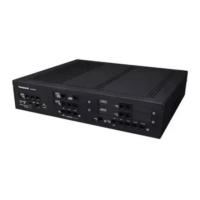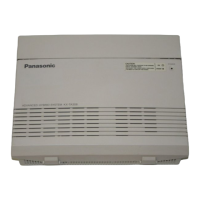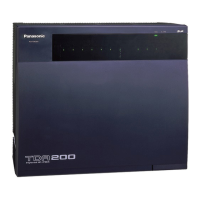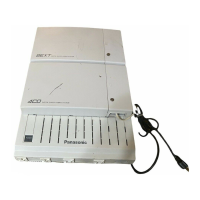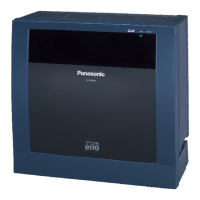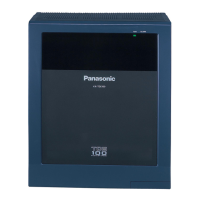1.1.1.6 Intercept Routing
Description
Provides automatic redirection of incoming trunk and intercom calls. There are three types of Intercept Routing
as follows:
Feature Description
Intercept Routing—No Answer
(IRNA)
If
a called party does not answer a call within a preprogrammed time
period (IRNA Timer), the call is redirected to the preprogrammed
destination.
Intercept Routing—Busy If a called party is already handling a call, new calls are handled as
follows:
– The call is redirected to the preprogrammed Intercept Routing
—
Busy destination.
– If an Intercept Routing—Busy destination is not enabled, the
caller will hear a busy tone. However, if the call is made through
an ELCOT/LCOT or T1 [LCOT/GCOT
] card, the caller hears a
ringback tone.
Intercept Routing—DND If a called party is in DND mode, the call is redirected to the
preprogrammed destination.
Intercept destinations can be assigned to extension ports.
® 6.1
[4-1-1] Wired Extension—Extension Settings—Intercept Destination—
Intercept Destination—When
called party does not answer—Day, Lunch, Break, Night
® 6.10 [4-2-1] Portable Station—Extension Settings—Intercept Destination— Intercept Destination—
When
called party does not answer
—Day, Lunch, Break, Night
® [604] Extension Intercept Destination
When the original destination is: The Available Intercept Destination is:
• Wired Extension (PT/SLT/SIP Extension/
T1-OPX)
• PS
The destination assigned to the original extension.
6.1 [4-1-1] Wired Extension—Extension Settings
—
Intercept Destination
→
Intercept Destination—When called party
does not answer—Day, Lunch, Break, Night
→ Intercept Destination—When Called Party is
Busy
6.10
[4-2-1] Portable Station—Extension Settings—
Intercept Destination
→
Intercept Destination—When called party
does not answer—Day, Lunch, Break, Night
→ Intercept Destination—When Called Party is
Busy
® [604] Extension Intercept Destination
28 Feature Guide
1.1.1 Incoming Trunk Call Features

